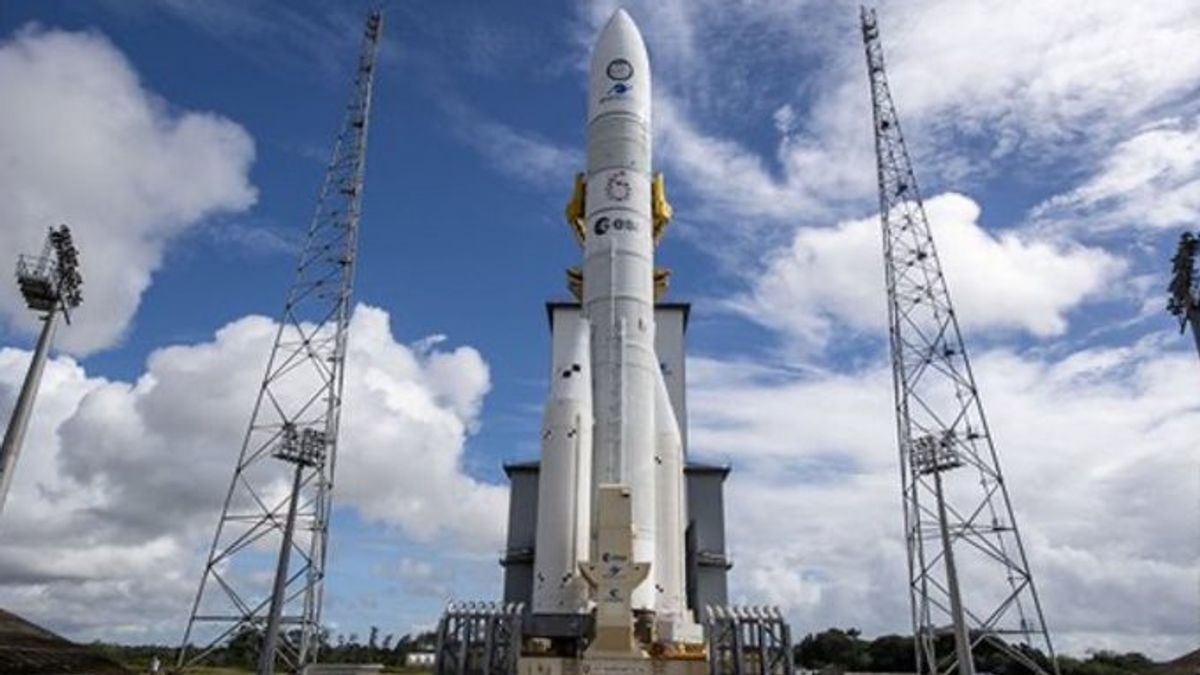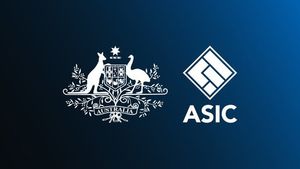Jakarta- Just days before its debut, the European Ariane 6 rocket lost its main customers to SpaceX. The European government organization in charge of launching and operating the continental weather satellite, Eumetsat, has decided to move its valuable MTG-S1 satellite mission from the launch of its upcoming Ariane 6 rocket to SpaceX's Falcon 9 rocket by 2025.
This decision is driven by extraordinary circumstances, said Phil Evans, director general of Eumetsat, quoted by VOI from Androida Authority. This does not compromise our standard policy in supporting European partners, and we look forward to the successful launch of SpaceX for this masterpiece of European technology.
This decision was taken at a board meeting of 30 Eumetsat member states on Wednesday and Thursday (26-27 June), less than two weeks before Ariane 6's rocket debut scheduled for July 9.
This decision reflects the lack of confidence in the reliability of the Ariane 6 rockets, the ability of European companies ArianeGroup and Arianespace to produce versions of Ariane 6 in the future, or both. This happened not only on the long-awaited debut night of Ariane 6, but also at a time when European officials tried to unite and ensure that satellites built in Europe were launched on European rockets.
SEE ALSO:
Retired Ariane 5 rockets in July last year, as well as years of delays in the readiness of the Ariane 6 rocket, have caused a painful period in which European officials must seek assistance from their longtime competitors in the rocket industry, SpaceX, for launch services. As a result, some of Europe's most valuable missions, including the Euclidean space telescope and several Galileo satellites, have been launched on Falcon 9.
This is quite embarrassing for European launch officials, who effectively created the concept of "commercial" space launch with the first Ariane rocket decades ago. For a long time, they, along with Russia, were the launches of another person's satellite. But now, on the eve of the restoration of European access to space, Eumetsat effectively stabbed the industry from behind.
Languages That Are Not Too Hard
In its release, Eumetsat described the new Meteosat Third Generation-Sounder 1 (MTG-S1) satellite as a "the unique work of European technology." The organization added, "This first European satellite that can conduct sound observations in geostationary orbit will bring revolution to weather forecasts and climate monitoring in Europe and Africa, and allow, for the first time, to observe the entire life cycle of convective storms from space." Very important, Eumetsat was not willing to entrust this spacecraft to Europe's new flagship rocket.
Philippe Baptiste, chairman and CEO of the French space agency CNES, felt the disappointment. He called this decision a " brutal change" and said it was "a disappointing day" for European space efforts.
"I'm really looking forward to understanding what reasons can make Eumetsat make such a decision, at a time when all major European space countries and the European Commission call for the launch of European satellites with European launchers!" wrote target on LinkedIn. "It doesn't mention the fact that we are 10 days away from Ariane's inaugural flight 6. To what extent will we, Europeans, go in our stupidity?"
Why Are They Doing This?
It is difficult to fully understand Eumetsat's motivation in this decision. Most likely, there are some concerns about time and reliability. The MTG-S1 satellite is scheduled to launch on the third flight of the Ariane 6 rocket, a mission that is nominally scheduled for early 2025. In this timeline, the satellite will most likely arrive in space faster than if it uses Falcon 9.
However, as this 4 tonne satellite will go into a geostationary orbit, it will be the first mission to require the use of a stronger version of the Ariane 6 rocket. Instead of using two solid rocket boosters, the "64" version of this rocket uses four solid rocket boosters. Most likely, Eumetsat officials have concerns that the timeline for this launch will be delayed and there may be concerns about mission guarantees as the first launch of the Ariane 64 rocket.
Whatever the reason, European satellite officials have thrown major problems at the celebration of Ariane 6's rocket debut.
The English, Chinese, Japanese, Arabic, and French versions are automatically generated by the AI. So there may still be inaccuracies in translating, please always see Indonesian as our main language. (system supported by DigitalSiber.id)


















